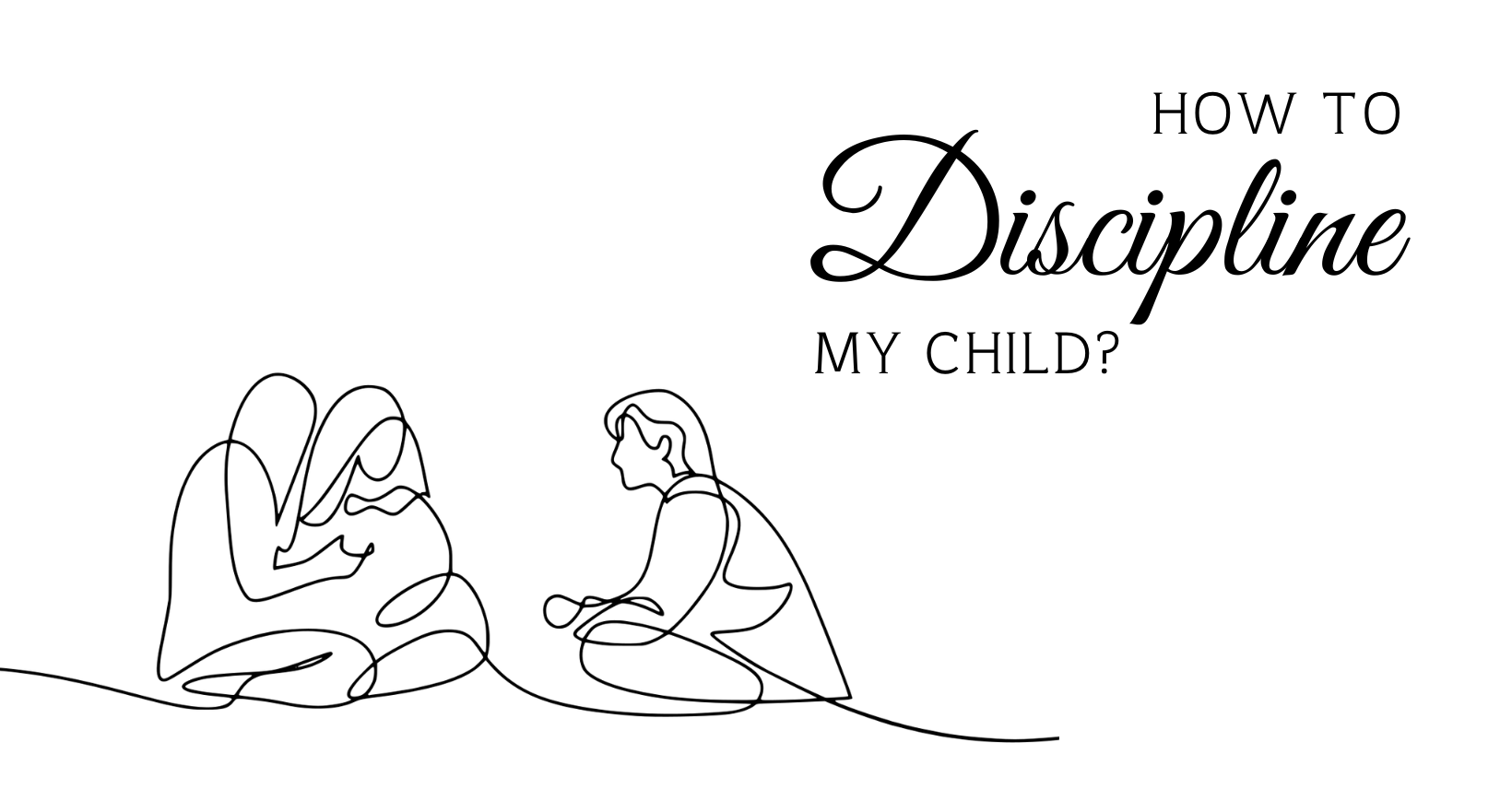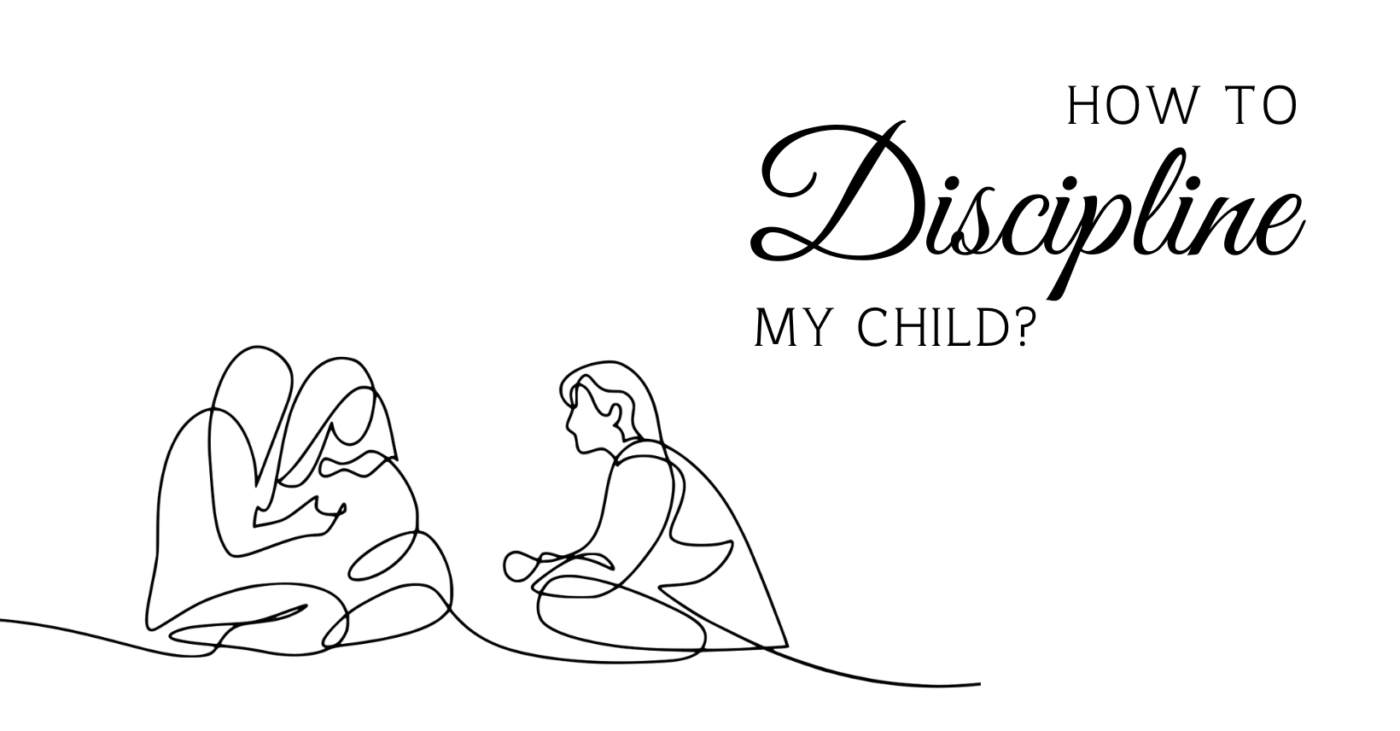
Training children is an awesome responsibility entrusted by God. Being a parent is a full-time job. Training should start from the womb. The first few years of a child are formative years when much of his personality is moulded. “Train up a child in the way he should go and when he is old, he will not depart from it” is God's word in Prov.22:6
There should be consistent training and disciplining right from the beginning. Primary responsibility to carry this out is given to parents and not grandparents, servants, or Sunday school teachers. Both father and mother need to be agreed upon the way they exercise it.
All forms of discipline should be exercised in love. This is foundational. Do not discipline children out of irritation or anger. Rules to be followed at home should be made clear to them and they should know that breaking them would attract disciplinary measures. Set realistic standards that can be achieved. Being overly strict or imposing 'military rule' at home will do more harm than good. They should know why they are disciplined, and proper explanation should be given.
Parents need lot of wisdom to know when to say 'yes' and when to say 'no'. Saying 'no' all the time may discourage the child and 'yes' constantly may spoil him. Therefore, we need to ask of God, who gives wisdom to all generously (James 1:5). Parents are authorized to spank (use rod) in the process of disciplining. Prov.23:14 says “You shall beat him with a rod, and deliver his soul from hell”. “The rod of correction imparts wisdom, but a child left to himself disgraces his mother" (Proverbs 29:15). Hebr.12:6, 7 also teaches this truth. “FOR THOSE WHOM THE LORD LOVES HE DISCIPLINES, AND HE SCOURGES EVERY SON WHOM HE RECEIVES. It is for discipline that you endure; God deals with you as with sons; for what son is there whom his father does not discipline?” (Also see Prov.20:30; 22:15)
It is to be remembered that correction must be fair, meaningful, and reasonable. Parents ought to be considerate. Remember that children too are normal human beings with their own personality, desires, needs, right to privacy and freedom of expression. Unwise discipline can discourage the children, crush their spirit, and lead them to despair. Children are to be disciplined for their disobedience, rebellion, and disregard to the rules in the house. They should not be spanked for their childish mischief or naughtiness. Disobedience/rebellion and scribbling on the wall/breaking a cup should not be taken with equal severity. Prolonged nagging is also to be avoided.
Parents should take special care to see that children are not spanked or scolded publicly in front of others. This will put them to shame, and they will feel humiliated. They will lose their dignity before others and are in a very embarrassing situation. Discipline can be exercised when no outsider is present at home.
Look at God's clear instruction in the New Testament “And, ye fathers, provoke not your children to wrath: but bring them up in the nurture and admonition of the Lord”. (Eph.6:4. Also Col.3:21) Firmness and kindness should be combined in the disciplining process. Parents should not act as 'fault-finders' all the time. Commenting on Col.3:21 J. N. Darby writes “Fathers should be gentle in order that children's affections may not be estranged from them, and that they may not be induced to seek that happiness in the world which they ought to find in the domestic circle which God has formed as a safe guard for those who are growing up in weakness.”
What the children need most from their parents is love, more than money, food, or toys. Remember, there is no substitute for spending time with them. They need us more than the 'things' we can give them. Children have a right to be considered as priority in our schedule. We may never 'get' time to be with them but 'make' time. Any amount of time spent with the children in playing, talking etc. should never be considered a waste.
It is important to keep the promises given to children. Parents should never make promises that they don't intend to fulfill. Never lie to children. They will lose their confidence and trust in you. They should know that your words can always be trusted. “If my parents say something, it must be true” should be the testimony of every child about his parent.
Open communication between parents and children is vital to the building up of healthy relationships in a family. Without it the relationships are strained. Each one living their own lives, under the same roof cannot relate to each other properly. Every member in the family should find time to talk to one another. Children should feel confident to talk about their problems to their parents and parents should listen to what they have to say. This becomes more relevant especially when children get to their teenage. This is a time when they undergo mental and physical changes. During this stage, they tend to think more independently and even rebel against the strict rules at home. Relationships come under stress at this time. Open and loving interactive communication can be of great help here.
Children learn values at home. We should give them the right 'values' not just 'valuables'. They will grow up with those values and mostly stick to them till the end. As children grow older, parents should train them to make their own decisions. It is unwise for parents to make all the decisions for them; they will never become independent or mature. Tomorrow, they have to face life in the absence of parents, and they should have the ability to make their own decisions.
Grown up children should never be treated as babes. They will not appreciate this. Responsibilities should be assigned to them according to their capacity. As they grow up, they will become responsible men and women. Consider them in decision-making, especially in issues related to them. Matters should be shared with them, and they should be taken into confidence. Let them know that their opinions also matter. Problems that the family faces should be made known to them too for prayer. They need to feel that they are an integral part of the family, and they have a part in everything that goes on.
Parents should accept each child with the intelligence level God has given him. Don't demand achievement beyond his capacity. Encourage him to do his best. Parental love and acceptance should not depend on their performance. Do not compare children with other children. Each child is a unique creation of God, different one from the other.
It is the responsibility of the church leadership to offer help to parents by giving systematic teaching on biblical principles of parenting. Lack of knowledge leads parents to unwise behavior resulting in turmoil between parents and children.
There should be consistent training and disciplining right from the beginning. Primary responsibility to carry this out is given to parents and not grandparents, servants, or Sunday school teachers. Both father and mother need to be agreed upon the way they exercise it.
All forms of discipline should be exercised in love. This is foundational. Do not discipline children out of irritation or anger. Rules to be followed at home should be made clear to them and they should know that breaking them would attract disciplinary measures. Set realistic standards that can be achieved. Being overly strict or imposing 'military rule' at home will do more harm than good. They should know why they are disciplined, and proper explanation should be given.
Parents need lot of wisdom to know when to say 'yes' and when to say 'no'. Saying 'no' all the time may discourage the child and 'yes' constantly may spoil him. Therefore, we need to ask of God, who gives wisdom to all generously (James 1:5). Parents are authorized to spank (use rod) in the process of disciplining. Prov.23:14 says “You shall beat him with a rod, and deliver his soul from hell”. “The rod of correction imparts wisdom, but a child left to himself disgraces his mother" (Proverbs 29:15). Hebr.12:6, 7 also teaches this truth. “FOR THOSE WHOM THE LORD LOVES HE DISCIPLINES, AND HE SCOURGES EVERY SON WHOM HE RECEIVES. It is for discipline that you endure; God deals with you as with sons; for what son is there whom his father does not discipline?” (Also see Prov.20:30; 22:15)
It is to be remembered that correction must be fair, meaningful, and reasonable. Parents ought to be considerate. Remember that children too are normal human beings with their own personality, desires, needs, right to privacy and freedom of expression. Unwise discipline can discourage the children, crush their spirit, and lead them to despair. Children are to be disciplined for their disobedience, rebellion, and disregard to the rules in the house. They should not be spanked for their childish mischief or naughtiness. Disobedience/rebellion and scribbling on the wall/breaking a cup should not be taken with equal severity. Prolonged nagging is also to be avoided.
Parents should take special care to see that children are not spanked or scolded publicly in front of others. This will put them to shame, and they will feel humiliated. They will lose their dignity before others and are in a very embarrassing situation. Discipline can be exercised when no outsider is present at home.
Look at God's clear instruction in the New Testament “And, ye fathers, provoke not your children to wrath: but bring them up in the nurture and admonition of the Lord”. (Eph.6:4. Also Col.3:21) Firmness and kindness should be combined in the disciplining process. Parents should not act as 'fault-finders' all the time. Commenting on Col.3:21 J. N. Darby writes “Fathers should be gentle in order that children's affections may not be estranged from them, and that they may not be induced to seek that happiness in the world which they ought to find in the domestic circle which God has formed as a safe guard for those who are growing up in weakness.”
What the children need most from their parents is love, more than money, food, or toys. Remember, there is no substitute for spending time with them. They need us more than the 'things' we can give them. Children have a right to be considered as priority in our schedule. We may never 'get' time to be with them but 'make' time. Any amount of time spent with the children in playing, talking etc. should never be considered a waste.
It is important to keep the promises given to children. Parents should never make promises that they don't intend to fulfill. Never lie to children. They will lose their confidence and trust in you. They should know that your words can always be trusted. “If my parents say something, it must be true” should be the testimony of every child about his parent.
Open communication between parents and children is vital to the building up of healthy relationships in a family. Without it the relationships are strained. Each one living their own lives, under the same roof cannot relate to each other properly. Every member in the family should find time to talk to one another. Children should feel confident to talk about their problems to their parents and parents should listen to what they have to say. This becomes more relevant especially when children get to their teenage. This is a time when they undergo mental and physical changes. During this stage, they tend to think more independently and even rebel against the strict rules at home. Relationships come under stress at this time. Open and loving interactive communication can be of great help here.
Children learn values at home. We should give them the right 'values' not just 'valuables'. They will grow up with those values and mostly stick to them till the end. As children grow older, parents should train them to make their own decisions. It is unwise for parents to make all the decisions for them; they will never become independent or mature. Tomorrow, they have to face life in the absence of parents, and they should have the ability to make their own decisions.
Grown up children should never be treated as babes. They will not appreciate this. Responsibilities should be assigned to them according to their capacity. As they grow up, they will become responsible men and women. Consider them in decision-making, especially in issues related to them. Matters should be shared with them, and they should be taken into confidence. Let them know that their opinions also matter. Problems that the family faces should be made known to them too for prayer. They need to feel that they are an integral part of the family, and they have a part in everything that goes on.
Parents should accept each child with the intelligence level God has given him. Don't demand achievement beyond his capacity. Encourage him to do his best. Parental love and acceptance should not depend on their performance. Do not compare children with other children. Each child is a unique creation of God, different one from the other.
It is the responsibility of the church leadership to offer help to parents by giving systematic teaching on biblical principles of parenting. Lack of knowledge leads parents to unwise behavior resulting in turmoil between parents and children.
– John Kurian



